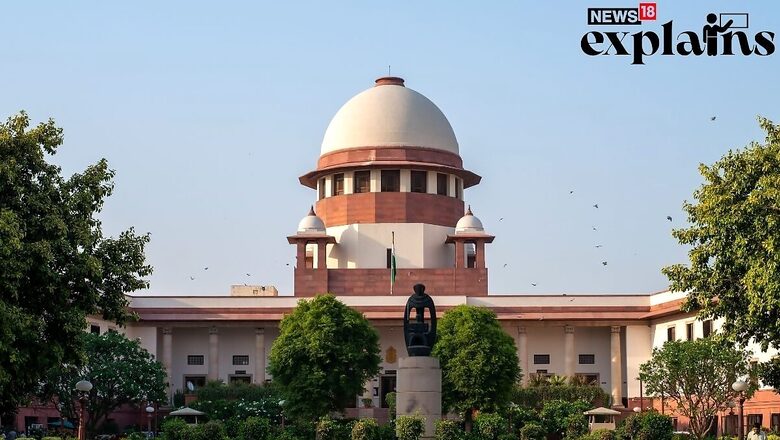
views
The Supreme Court on Tuesday refused to grant legal recognition to same-sex marriages and said it is for the Parliament to change the Special Marriage Act (SMA). The apex court, while presiding over a hearing on the legalisation of same-sex marriage, also noted that if the Special Marriage Act is struck down, it will take the country to the “pre-independence era”.
Chief Justice of India DY Chandrachud, who presided the bench pronouncing the verdict on 21 pleas, said the court can’t make or redraft the law but only interpret it and it is for Parliament to change the Special Marriage Act.
The bench had made it clear during the arguments of the case that it will not go into personal laws governing marriages. The Supreme Court judges had varied observation on whether the Special Marriage Act was passed solely to allow heterosexual marriages.
How are Marriages Registered in India
The issues of personal law like marriage, divorce and adoption are governed by religious laws. The marriages in India are registered under the respective personal laws like Hindu Marriage Act, 1955, Muslim Marriage Act, 1954 or under the Special Marriage Act, 1954.
However, these acts work only in cases where the couple belongs to the same religion or require either spouse to convert to the religion of the other before marriage.
The Special Marriage Act, 1954, on the other hand enables marriage between inter-faith or inter-caste couples without giving up their religious identity or convert.
What is the Special Marriage Act 2023?
A marriage under the Special Marriage Act (SMA), 1954 allows people from two different religious backgrounds to come together in the bond of marriage. The act of Parliament has the provision for civil marriage for people of India and all Indian nationals in foreign countries, irrespective of religion or faith followed by either party.
The Special Marriage Act, 1954, passed by the Parliament in October 1954, originated from a piece of legislation proposed during the late 19th century. It extends to the whole of India and applies to all the citizens.
It lays down the procedure for both solemnization and registration of marriage, where either of the husband or wife or both are not Hindus, Buddhists, Jains, or Sikhs. Under the act, the state sanctions the marriage rather than the religion.
Why is it Special?
Once married as per the SMA, any member of an undivided family who professes the Hindu, Buddhist, Sikh or Jain religion shall be deemed to affect their severance from the family. The act also affects rights, including the right to inheritance, of the persons choosing to marry.
The Section 4 of the Special Marriage Act also require that during the marriage “neither party has a spouse living” or is “incapable of giving a valid consent to it in consequence of unsoundness of mind”.
The parties to the marriage are also required to give a written notice to a “Marriage Officer” of the district in which at least one of the parties has resided for at least 30 days immediately preceding the notice.

















Comments
0 comment